- Home
- Neal Asher
Zero Point (Owner Trilogy 2) Page 6
Zero Point (Owner Trilogy 2) Read online
Page 6
‘Get me TEB!’ he shrieked, moving out of the webcam frame as he shot up out of his seat, cam tracking jerking as it followed him up. The scene whited out for a moment, Angone transformed into a charcoal silhouette, then blinked out completely. The moving light on Clay’s screen abruptly expanded and the words ‘objective achieved’ briefly appeared before the screen switched to whatever Clay had been dealing with before.
A tone chimed in Serene’s head: current number unobtainable.
3
Dig up the Foundations
Back in the twenty-first century, a technological singularity did not just seem possible, it seemed inevitable; but those booting up their computer models of human technological development neglected one critical force: the power of human stupidity. For technology to develop so fast that it goes beyond the ability of humans to model it, the underlying bedrock of science must be rigorous and stable. Yet, even in that century, science was becoming unduly influenced by political thought and execrable creations like post-normal science. Science itself began to break down when Karl Popper’s dictum of falsifiability was abandoned in favour of faith, and when funding for it became wholly controlled by political expediency. Scientific thought stagnated when the scientists themselves became frightened to pursue lines of research that led them away from whatever consensus happened to be the love child of the politicians who controlled the funding. They became merely puppets producing the results required of them, distorting their research to fit, taking their thirty pieces of silver and crying in their laboratories; dwarfs scuttling away from the shadows of giants like Feynman and Dyson.
Zero Plus One Month – Argus
‘You’re done?’ Saul said, gazing at Hannah steadily.
She felt a tightness growing in her stomach with the return of her fraudulent friend, her panic attacks. With the pressure off, it seemed it was stirring from slumber. She clamped down on it as best she could and surveyed the gleaming surfaces around her.
It had taken her some hours beyond what she had considered her shift to set the surgical equipment in her operating theatre back to a general-purpose mode, clear away all the additional equipment she had been using over the last month, and return her laboratory to order – return it to a place for research rather than production-line surgery. No more would station police be bringing her yet another heavily sedated Committee delegate, facilitator or executive who had remained blithely indifferent while signing orders for mass murder. No longer would she be destroying memories and adjusting minds down to a base template – a mostly blank slate. Now she could get back to her real work. But he knew that, of course he knew.
‘Yes, I’m done,’ she agreed.
It should have taken her longer but a sickness spreading through Arcoplex One, probably from the decaying corpses there, had shortened the duration of her chore to a month by killing off twenty-two delegates. She wasn’t sure whether to be glad about that or not.
Her gaze now slid to one of her work tables, on which stood three half-metre-square brushed-aluminium boxes. Even after tidying everything up, she had continued working: bringing these boxes out of her clean-room to ensure that the samples from Saul’s brain were still growing in their aerogel matrices, that the nutrients remained balanced and the waste was being properly extracted. She had even connected them up to her computers here and studied the waveforms – the shapeless thoughts already being generated in the growing brain matter. Now exhaustion was catching up with her, and she was too tired for the panic attack to get a firm grip on her.
‘And you’re okay?’ he prompted.
He thought she was burdened with guilt, beating herself up about erasing the minds of erstwhile Committee delegates, and styling herself no better than them because of what she had done. Or did he really think that? Considering how Hannah had reacted to violence of any kind, a normal human being would perhaps surmise that what he had driven her to do was reason for her to be miserable. But Alan Saul had never been a normal human being, even before Director Smith had tortured him to the point of extinction, before his strange resurrection, before the advanced implants in his skull and before he melded his mind with the artificial intelligence, Janus. Perhaps he could see through her, and knew that Hannah’s problem was that she felt no guilt at all.
‘Why are you here?’ she asked. ‘I got the impression you were staying in Tech Central until we can turn off the EM field.’ She glanced towards the spidergun crouching just inside the door. Doubtless the usual horde of robots would also be scattered throughout Arcoplex Two, though she didn’t think that was about cowardice but about control.
‘I’ve come to speak with Professor Jasper Rhine,’ he said.
Before she could stop herself, Hannah emitted a snort of disbelief.
‘You have some opinion?’ he enquired.
Hannah tried to read his expression. Was he amused, angry or indifferent? It was difficult to tell. His eyes were still a dark pink – something initially due to blood-pressure imbalances in his skull, but now due to she knew not what.
‘It’s interesting work,’ she said tentatively, ‘but I would rather rely on fusion, and I would rather not waste time and energy speculating about the transubstantiation of human souls into the fourth dimension, and the connection between the human “energy field” and holistic healing.’
‘But is that all his work is about?’ he asked.
She conceded to herself that it wasn’t. ‘I’m not completely dismissive,’ she said, formulating her opinion on the spot. ‘There are the possibilities inherent in Casimir batteries, rectifier convertors and the tangle communicator . . .’
‘All theorized and tested a century ago.’
‘So what’s your interest?’
He swung his gaze around her laboratory, it coming to rest on the three brushed-aluminium boxes. Hannah turned and noticed one of her nearby screens suddenly running streams of code. He was taking a look at it, in his own inimitable way.
‘We should be so much further ahead than we are now,’ he opined. ‘The Committee put human endeavour back a century at least. So much of the technology we have now is last century’s news.’
Despite her weariness, Hannah felt her curiosity stirring. ‘We should have entered the technological singularity by now?’
He shook his head. ‘Difficult to know where we are on the exponential curve, when you don’t know what the exponents are. No, I’m simply stating that, by subjecting the best minds in the world to the strongest political control, the Committee shut down free thought, hampered creativity and suppressed anything outside the box.’ He began heading to the door, then paused and turned back. ‘Do you want to come?’
He’d done it again. When he entered her laboratory, all she had wanted was sleep. Now she knew she had to go with him. She stripped off her lab jacket and tossed it over the back of a nearby chair.
‘So you’re saying that what Rhine is doing is creative . . . outside the box?’ she asked.
‘No, on the surface he is doing precisely the opposite.’
‘If you could elaborate?’
The spidergun rose up onto its legs and exited ahead of him. He stepped out too, and Hannah hurried to catch up.
‘At the start of the twenty-first century, the whole issue of zero-point energy was hijacked by pseudo-scientists,’ he lectured. ‘Like electricity and magnetism of two centuries before, it was associated with the supernatural, the miraculous. General scientific opinion gradually hardened against it and then, with the rise of the Committee, the whole issue petrified. There’s been very little real research into zero-point energy for over a hundred years.’
‘Which hardly explains Jasper Rhine’s function here, does it?’
‘Messina,’ explained Saul, stabbing a finger upwards, in the general direction of Robotics. ‘Just as with those androids the Saberhagens are working on, Jasper Rhine’s so-called research was another pet project of Messina’s. Rhine was instructed to investigate the interaction of the zero-poi
nt field with the human energy field. To put that into simpler terms: there have always been those who fear death so much they want to believe that something exists beyond it.’
Hannah suddenly got it. ‘Messina wanted proof that the human soul exists?’
‘On the button.’
‘So you’re visiting Jasper to tell him he’ll henceforth be working in Hydroponics?’
‘Certainly not.’
Jasper Rhine stood just inside the door to his huge laboratory. Thin and exceedingly tall, he had developed a constant stoop to make himself look smaller. His hair was blond and ragged, as if he had impatiently taken the scissors to it himself within recent days. His eyes were like black buttons and his narrow face bore the wrinkles of one who had suffered a great deal of pain. Just noticeable on his face and the backs of his hands was a web-work of narrow white scars.
Computers packed this place, jury-rigged in ways Hannah, during her few brief visits here, had been unable to fathom. Various experiments were also running. A complex tangle of glass tubes, through which clear fluid flowed, emitted bluish glows from within its midst. A framework supported a torus five metres across, this wrapped in electromagnets to which heavy cables snaked across the floor. Other machines here, within enclosed booths, Hannah knew to contain the tools for chip-etching and nano-machining. It seemed such a waste to have all this stuff here for the research of nonsense. What on earth did Saul intend?
Rhine looked terrified, and well he might, for here was someone who would be able to see through all his bullshit. He could babble all he liked about sono-luminescence, vacuum fluctuations and the ground state of hydrogen, and Saul would be baffled by none of it. However, Hannah remembered that he had looked terrified when last she saw him, and others who had met him had commented on this too. It seemed he spent his life in a constant state of fear.
‘You received my instructions precisely two weeks ago,’ Saul stated.
Rhine gave a sharp nod, and shivered. Hannah noticed that he seemed more tired and somewhat less clean than he had appeared last time she saw him. ‘You told me . . .’ he choked to a stop for a moment, took a deep breath, then continued, ‘to abandon a lot of research projects.’
Saul gave a slow nod. ‘Nothing will be lost, since memory storage has never been a problem, and some of the data from those projects might be useful.’
‘Chairman Messina considered it all . . . useful and of prime importance,’ Rhine managed.
‘Yes, but I’ve read all your submissions to him: Vacuum Fluctuations at the Point of Death, Zero-Point Initiation of Human Thought and Kirilian Aural Interaction with the Zero-point Field were the ones that told me all I needed to know, however.’
‘You’ve read them all?’ Rhine looked devastated. Perhaps he wasn’t used to people actually reading his papers.
‘All of them are post-normal science; all are based on statistical artefacts, wishful thinking and what I can only describe as an attempt to create a scientific basis for religious faith,’ said Saul. ‘Your last paper, on the underlying universal mind, is the one most blatant about it.’
‘So you dismiss it all? You’re shutting me down?’ The man looked as if he was about to cry.
‘Not all of it, just the pseudo-science rubbish you fed Messina so as to keep your resource allocation, and to have enough projects running under which to bury your real research – the research I now want you to focus on completely.’ Saul stared at him for a long moment. ‘There will be no more razorbirds or inducement cells in your future, Jasper Rhine. You will give me the truth even if you think I’ll find it unpalatable. All hypotheses will require empirical proof before they can be submitted as theories, and will thereafter undergo every possible test to disprove them.’ He paused again, allowed himself a rare smile. ‘The spirit of Karl Popper is going to be on your back henceforth.’
Rhine not only straightened up, but brushed his hair from his forehead, then inspected his fingernails with something approaching disgust. Saul had done it again: he had judged this man perfectly, used the right words just so, and reached into Rhine’s skull to flip over a few switches. But what was that about razorbirds and inducement? It didn’t take much thought for Hannah to realize that perhaps Rhine had once not been very cooperative with Messina. Here stood a man who had been broken and forced into submission. This whole station was full of people just like him.
Saul scanned the room. ‘You have the prototype power cells here?’
Rhine made a jerky gesture to a nearby bench, then after a pause led the way over to it. He pointed at a small stack of plain grey objects, like dominoes, amidst the other equipment.
‘Pick one up,’ he said.
Hannah glanced at him, and noticed his face had lost some of its stress. There was a hint of excitement there, a ghost of the boyish enthusiasm seared out of him in an inducement cell. His eyes, she now realized, were dark brown, and not black.
Saul reached out and took up one of the objects, held it for a moment, then passed it to Hannah. She almost dropped the thing.
‘Very cold,’ she said, then reached out to touch the bench. It wasn’t cold at all.
Saul turned back to Rhine. ‘What percentages are we talking about here?’
‘Nano-rectification of nearly eighty per cent of all external EM radiation and the same for heat. The ZPE accounts for a debatable five per cent of the power output.’
‘What can they sustain?’
‘Seventy watts constantly, unless in quantum vacuum.’
‘What is this, Saul?’ Hannah interrupted.
He glanced round at her. ‘It’s cold because the heat from your hand is being rectified into electricity and stored. In fact every electromagnetic radiation in this room is being converted into electricity through folded nano-films of rectifiers inside it. They rectify a small amount of electricity direct from the zero-point field too.’ He swung back to Rhine. ‘I want these in production as fast as you can, because we’ll need to cut down on the energy debt as soon as possible.’
‘They’re batteries?’ asked Hannah, not quite wanting to admit what she was holding.
Still gazing at Rhine, Saul replied, ‘Batteries that recharge themselves constantly from their environment, batteries that theoretically can output energy even when surrounded by only quantum vacuum.’ He shook his head and reached out to pick up another one of the objects. ‘The paradigm changed a hundred years ago, but then the research dropped into a cul-de-sac where increasingly complex methods were proposed to extract free energy from the zero-point field – while ignoring the other possibilities.’
‘It seemed as if Messina didn’t ignore them,’ said Hannah.
Saul waved a dismissive hand. ‘I’m talking about the realities, not the fantasy. I’m talking about the real research conducted here . . . aren’t I, Jasper?’
‘You may be,’ said Rhine, non-committal.
‘But you think it’s possible . . . or something like it, don’t you?’
Hannah gazed at Rhine’s expression. Maybe this was something he had spent so long keeping covered that he was finding it difficult to speak about it now – whatever ‘it’ was. Eventually he struggled to get the words out.
‘If you are talking about the Alcubierre Drive then, yes, something like it is very possible indeed.’
‘I am unfamiliar with the name,’ Hannah interjected.
‘How?’ Saul asked Rhine, ignoring her remark.
‘Polarize the quantum foam . . . then collapsing the ZPF ahead induces expansion behind.’
‘I thought there would be a requirement for exotic matter, negative-mass structures and Bose–Einstein condensates?’
Rhine shook his head and allowed himself a superior smile. The man would now explain something that Saul quite obviously already knew, and would feel more confident, boosted, and thus be more enthusiastic about producing what Saul required of him.
‘Exotic energy,’ he explained. ‘The apparent effects of exotic matter can be generated by
the interaction of EM radiation fields with tensioned space-time.’ Rhine gestured about himself to indicate all of Argus Station. ‘Our EM radiation shield could supply half the equation. All we would then need is the tensioning device, which, the moment the interactions begin, would become a vortex generator.’
‘Speed?’
‘Of the tensioning mass?’ Rhine shrugged. ‘Overall spin would be . . . three-quarters c, with the spiral eddy currents taking us as close as it gets.’
‘Very high energy requirements to get it up to that speed,’ Saul observed.
Rhine waved a dismissive hand. ‘If you believe Einstein.’
Saul allowed himself a private smile, then continued, ‘Anyway, I meant, what is the overall speed of the space-time bubble. Theories on that haven’t changed much in centuries, and they put it at twenty-five per cent.’
‘No, it’s governed only by how fast you can collapse the field.’
‘Then I want plans and I want evidence. I want you to work out how we build it and, if you convince me it will work, we’ll start construction of your tensioning . . . of your vortex generator directly after we’ve finished enclosing the station.’
‘It will work,’ said Rhine, ‘and I can prove it.’
Saul nodded and turned to Hannah. ‘A theorized warp drive is what he means. We’re talking about inertia-less flight, faster-than-light travel, and everything that entails.’
Zero Plus One Month – Earth
The sun was shining on massive activity within the Aldeburgh Complex. Aeros were taking off and landing, personnel were disembarking or boarding. A couple of big heavy-lifter aeros were delivering a fusion reactor and, even as Serene stood there taking it all in, a scramjet shot overhead. There was no indication at all of the grim horror that lay just a few kilometres inland, except the smell.
Serene took the nasal spray out of her pocket, gave herself a shot up each nostril, and the putrid smell went away. Right at that moment, factories in Britain, Germany and Portugal which previously manufactured nasal inhalers for a particularly virulent herpes sinus infection, were mass-producing these devices. Even so, supply was struggling to keep up with demand, especially from those working the in-field clear-up teams. Serene turned to gaze at a distant pillar of black smoke: the pyre taking in the dead from Aldeburgh and from the hordes of zero assets lying beyond. It had been burning for ten days now.

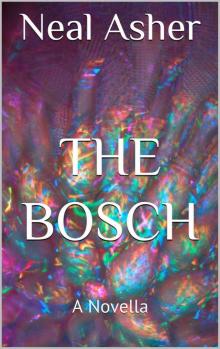 The Bosch: A Novella (Polity Universe)
The Bosch: A Novella (Polity Universe)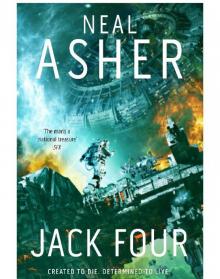 Jack Four
Jack Four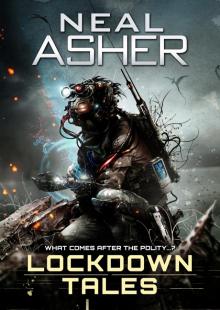 Lockdown Tales
Lockdown Tales The Warship
The Warship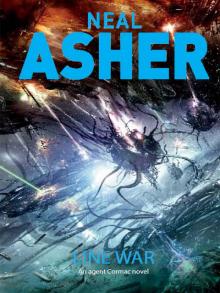 Line War
Line War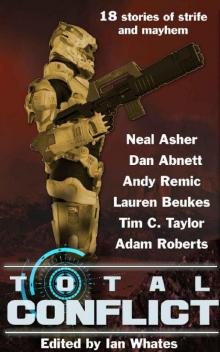 Total Conflict
Total Conflict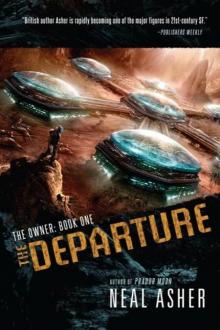 The Departure
The Departure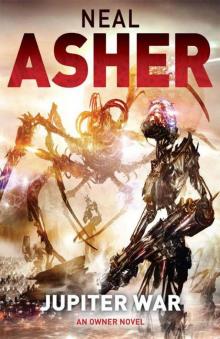 Owner 03 - Jupiter War
Owner 03 - Jupiter War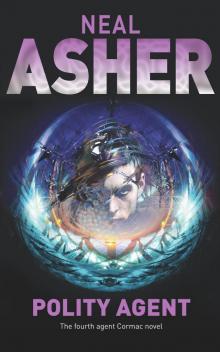 Polity Agent
Polity Agent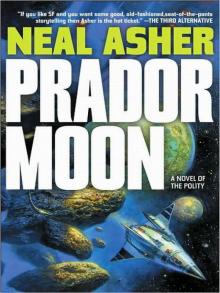 Prador Moon
Prador Moon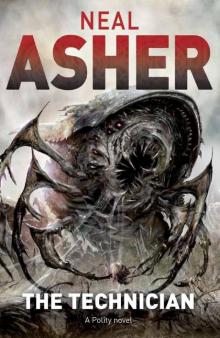 The Technician
The Technician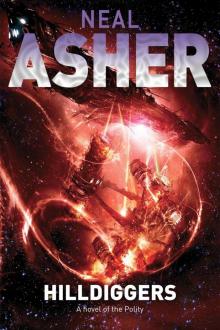 Hilldiggers
Hilldiggers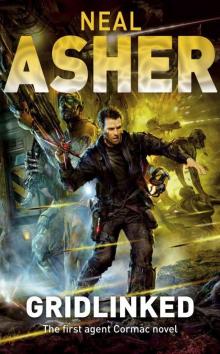 Gridlinked
Gridlinked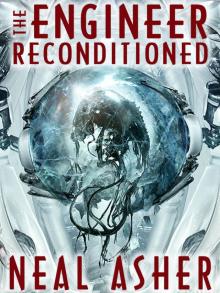 The Engineer ReConditioned
The Engineer ReConditioned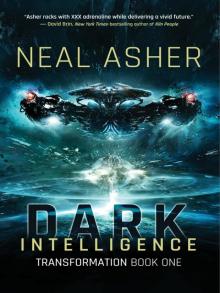 Dark Intelligence
Dark Intelligence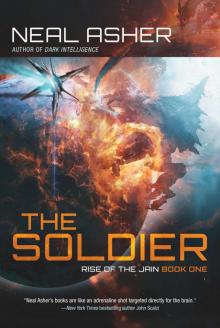 The Soldier: Rise of the Jain, Book One
The Soldier: Rise of the Jain, Book One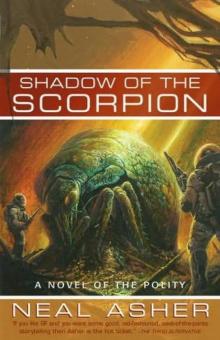 Shadow of the Scorpion p-2
Shadow of the Scorpion p-2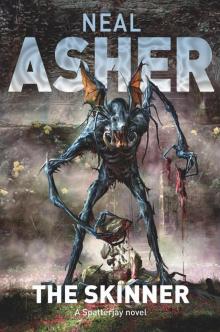 The Skinner
The Skinner The Soldier
The Soldier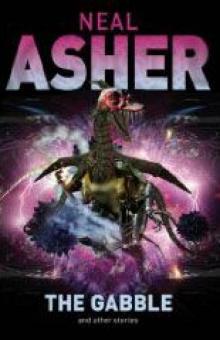 The Gabble p-13
The Gabble p-13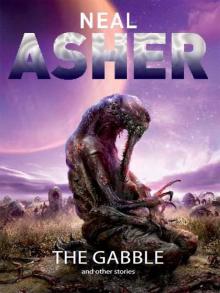 The Gabble and Other Stories
The Gabble and Other Stories The Parasite
The Parasite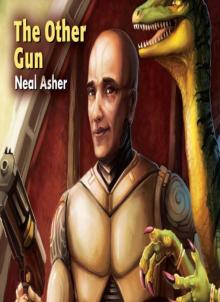 The Other Gun
The Other Gun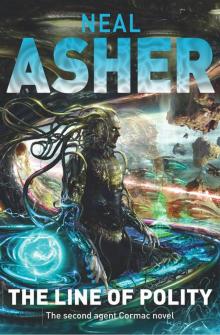 The Line of Polity
The Line of Polity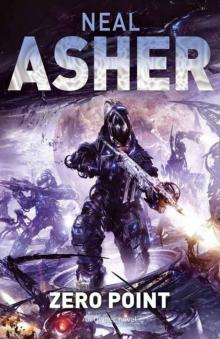 Zero Point (Owner Trilogy 2)
Zero Point (Owner Trilogy 2)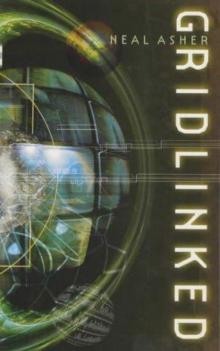 Gridlinked ac-1
Gridlinked ac-1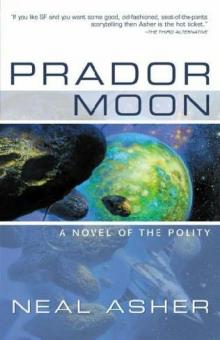 Prador Moon p-1
Prador Moon p-1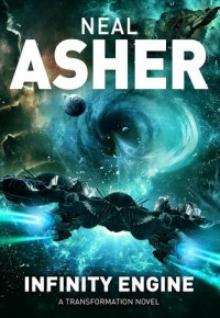 Infinity Engine
Infinity Engine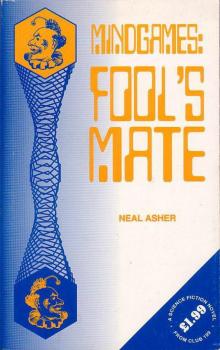 Mindgames: Fool's Mate
Mindgames: Fool's Mate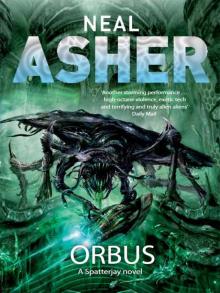 Orbus
Orbus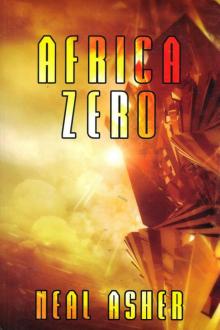 Africa Zero
Africa Zero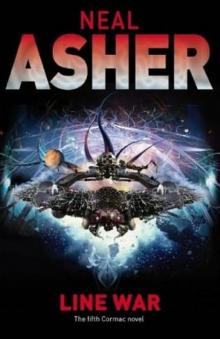 Line War ac-5
Line War ac-5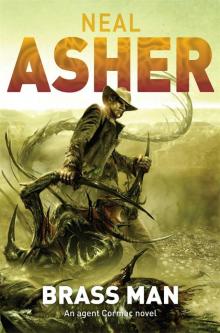 Brass Man
Brass Man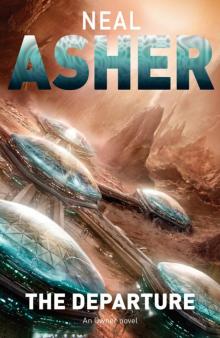 The Departure to-1
The Departure to-1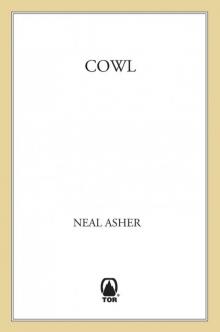 Cowl
Cowl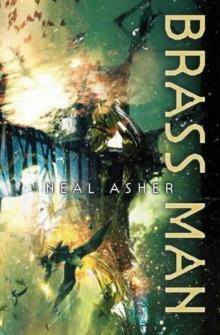 Brass Man ac-3
Brass Man ac-3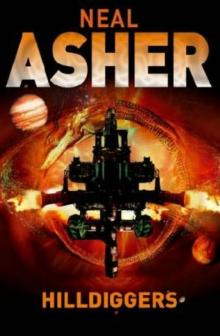 Hilldiggers (polity)
Hilldiggers (polity)![Greg Bear - [Eon Trilogy 1] - Eon (rescan) (v1.0) Read online](http://i1.bookreadfree.com/i2/04/08/greg_bear_-_eon_trilogy_1_-_eon_rescan_v1_0_preview.jpg) Greg Bear - [Eon Trilogy 1] - Eon (rescan) (v1.0)
Greg Bear - [Eon Trilogy 1] - Eon (rescan) (v1.0)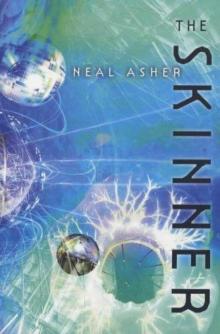 The Skinner s-1
The Skinner s-1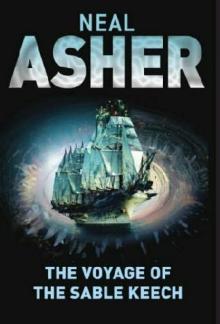 The Voyage of the Sable Keech s-2
The Voyage of the Sable Keech s-2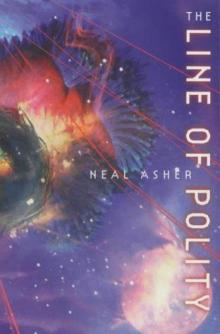 The Line of Polity ac-2
The Line of Polity ac-2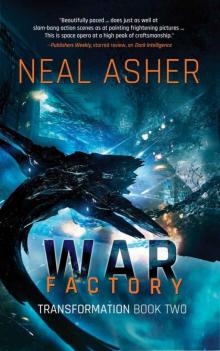 War Factory: Transformations Book Two
War Factory: Transformations Book Two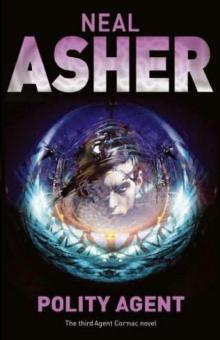 Polity Agent ac-4
Polity Agent ac-4